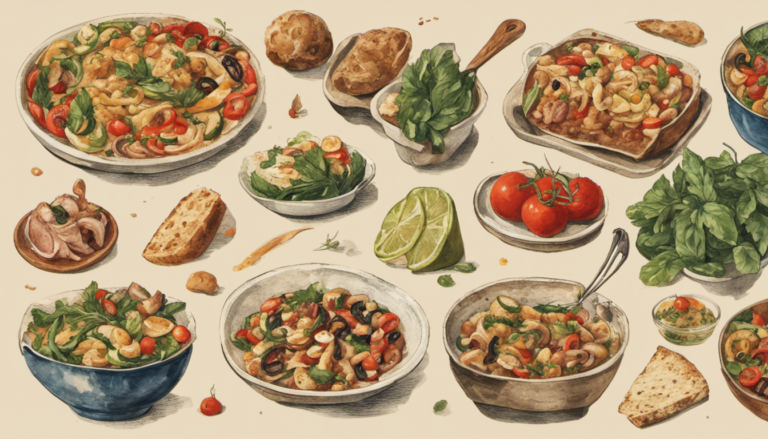Quick Tips to Lower Your Blood Pressure
I. Introduction
High blood pressure, also known as hypertension, is a common health condition that affects millions of people worldwide. It is often referred to as the “silent killer” because it typically has no noticeable symptoms but can lead to serious health problems if left untreated. High blood pressure occurs when the force of blood against the walls of your arteries is consistently too high.
Maintaining healthy blood pressure levels is crucial for overall health and wellbeing. It helps ensure that your body’s organs and tissues receive the oxygen and nutrients they need to function properly. Moreover, it reduces the risk of heart disease, stroke, and other life-threatening conditions.
Understanding blood pressure and how to manage it effectively is an essential aspect of maintaining good health. This article aims to provide a comprehensive overview of high blood pressure, its causes, and how to lower it for a healthier lifestyle. (source)
II. Understanding Blood Pressure
Blood pressure is the force exerted by circulating blood against the walls of the body’s arteries, the main blood vessels in the body. It is one of the principal vital signs. When your heart beats, it pumps blood into the arteries, creating pressure within them.
Blood pressure readings consist of two numbers, usually shown as one above or before the other. The first (or top) number represents your systolic blood pressure, the pressure in your arteries when your heart beats. The second (or bottom) number represents your diastolic blood pressure, the pressure in your arteries when your heart rests between beats. A blood pressure reading is typically given in millimeters of mercury (mmHg).
High blood pressure, or hypertension, is a condition where the force against the artery walls is too high. It can lead to severe health complications, including heart disease, stroke, and kidney disease. (source)
III. Causes of High Blood Pressure
High blood pressure can be caused by a variety of factors. Some of these are genetic, meaning they are inherited from your parents. These include age, race, and family history of high blood pressure. If your parents or other close blood relatives have high blood pressure, you’re more likely to develop it, too.
Lifestyle factors also play a significant role in the development of high blood pressure. These include unhealthy diet, lack of physical activity, obesity, excessive alcohol consumption, and tobacco use. Stress can also increase your risk of developing high blood pressure.
Some medical conditions can also lead to high blood pressure. These include kidney disease, diabetes, and sleep apnea. Certain medications, such as birth control pills, cold remedies, decongestants, over-the-counter pain relievers, and some prescription drugs, can also raise blood pressure. (source)
IV. Importance of Lowering Blood Pressure
Maintaining normal blood pressure is crucial for your health. It helps prevent the development of heart disease, stroke, and other serious health conditions. Moreover, it can improve your overall health and wellbeing.
Lowering high blood pressure can help prevent heart attacks and strokes. High blood pressure is a major risk factor for cardiovascular diseases, the leading cause of death worldwide. By keeping your blood pressure in the normal range, you can significantly reduce your risk of these deadly diseases.
Lowering high blood pressure can also improve your overall health and wellbeing. It can help prevent kidney disease, reduce your risk of dementia, and improve your quality of life. (source)
V. Quick Tips to Lower Blood Pressure
There are several ways to lower high blood pressure. Regular exercise is one of the most effective methods. It helps strengthen your heart, lower your blood pressure, and improve your overall health. Aim for at least 30 minutes of moderate-intensity exercise most days of the week.
A healthy diet is also crucial for managing high blood pressure. It should include plenty of fruits, vegetables, whole grains, lean proteins, and low-fat dairy products. Limit your intake of saturated fats, trans fats, cholesterol, and sodium.
Limiting alcohol and caffeine can also help lower high blood pressure. Both can raise your blood pressure, especially in excess. If you smoke, quitting can significantly lower your blood pressure and improve your overall health. (source)
VI. Detailed Discussion on Each Tip
Regular exercise can help lower high blood pressure by strengthening your heart and improving your cardiovascular health. It can also help you maintain a healthy weight, which is crucial for managing high blood pressure. Some of the best exercises for lowering blood pressure include walking, jogging, cycling, swimming, and strength training.
A healthy diet can help control high blood pressure and prevent heart disease. It should be rich in fruits, vegetables, whole grains, lean proteins, and low-fat dairy products. Limit your intake of saturated fats, trans fats, cholesterol, and sodium. (source)
Alcohol and caffeine can raise your blood pressure, especially in excess. Limit your intake of these substances to help manage your blood pressure. If you smoke, quitting can significantly lower your blood pressure and improve your overall health. Smoking damages your blood vessels and can lead to high blood pressure.
VII. Conclusion
Maintaining healthy blood pressure is crucial for overall health and wellbeing. It helps ensure that your body’s organs and tissues receive the oxygen and nutrients they need to function properly. Moreover, it reduces the risk of heart disease, stroke, and other life-threatening conditions.
Implementing the tips discussed in this article can help you lower your blood pressure and lead a healthier lifestyle. Remember, it’s never too late to make positive changes to your health. Start today and reap the benefits for years to come.
Finally, remember that managing high blood pressure is a lifelong commitment. It’s not about quick fixes but making lasting changes to your lifestyle. Stay positive, stay motivated, and you can achieve your health goals. (source)
FAQs
What is high blood pressure?
High blood pressure, or hypertension, is a condition where the force against the artery walls is too high. It can lead to severe health complications, including heart disease, stroke, and kidney disease.
What causes high blood pressure?
High blood pressure can be caused by a variety of factors, including genetic factors, lifestyle factors, and certain medical conditions.
How can I lower my blood pressure?
You can lower your blood pressure by making lifestyle changes, such as exercising regularly, eating a healthy diet, limiting alcohol and caffeine, quitting smoking, and managing stress.







